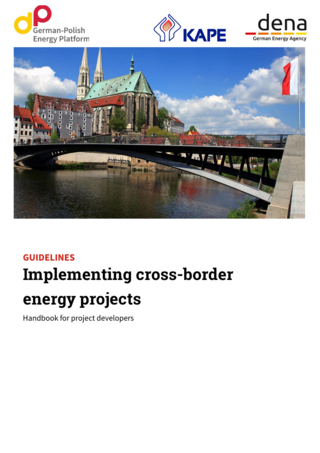Successfully implementing cross-border energy projects: Handbook for project developers published
The potential for local generation and use of renewable energy in border regions is far from exhausted. With facts, experience and recommendations, we at dena support project developers in getting more cross-border projects off the ground - and thus make
Successfully implementing cross-border energy projects: Handbook for project developers published
The potential for local generation and use of renewable energy in border regions is far from exhausted. With facts, experience and recommendations, we at dena support project developers in getting more cross-border projects off the ground - and thus make an effective contribution to achieving energy and climate targets.
With this practical handbook, we want to facilitate the implementation of projects that advance the energy transition through cross-border cooperation in Europe. Based on experiences and case studies in the German-Polish border region and beyond, we raise awareness of the benefits of cross-border energy projects and of existing instruments and solutions that support their development. We focus on the non-technical dimensions of project development - i.e. political, legal and financial frameworks - and describe important steps to consider when initiating and planning a cross-border energy project or when contacting stakeholders. By describing cross-border projects that are currently being planned or implemented, we provide inspiration for new projects.
In addition to this handbook, we have also published an article that highlights the importance of cross-border district heating projects. The article can be found in the German edition of the Energate messenger here (behind a paywall).
This publication supports the European Union's plan to strengthen cross-border cooperation in the energy sector. Among other things, an EU regulation is planned for 2025 that will enable the establishment of cross-border coordination centres and help remove potential obstacles (Border Regions Instrument for Development and Growth in the EU - BRIDGEforEU). EU Member States have committed to establish a cooperation framework with at least one other country by the end of the year and thereby to support at least two cross-border projects by the end of 2030 (Article 9 of the Renewable Energy Directive).
National governments and project developers therefore have a common interest in promoting cross-border energy projects. The signs are good that 2025 will be a successful year for cross-border cooperation.
